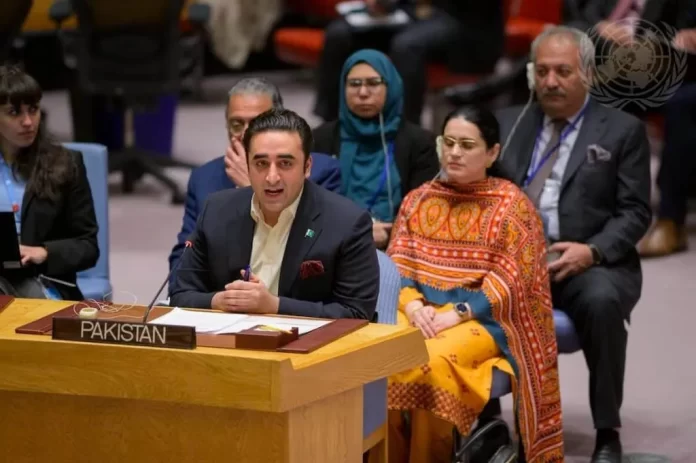It can be seen as both irony and a mockery that a male Foreign Minister of Pakistan was selected to attend the first International Women’s Day conference on the rights of women in Islam that was hosted by the Organisation of Islamic Cooperation (OIC) at the United Nations (UN) on 8 March 2023. It is possible that his selection had valid reasons, such as his involvement in conceiving and pursuing the idea of the conference. Nonetheless, the decision may have sent the wrong message, especially on International Women’s Day, a day that celebrates women’s achievements and calls for gender equality.
Two days later, the Foreign Minister chaired another high-level event at the UN General Assembly that commemorated International Day to Combat Islamophobia. It was indeed a very wise move on the part of the Foreign Minister to use both events to voice concerns on issues that affect the Muslim world. Discrimination and hatred against Muslims are global problems that require the attention of policymakers and leaders around the world.
International Women’s Day and International Day to Combat Islamophobia were both opportunities to reflect on the progress that has been made in addressing these issues, as well as the work that still needs to be done.
The incidents of Islamophobia and misrepresentation of Muslim women’s status in the world are often related to a human tendency called hatred. It’s needless to say that over a period of time, cases of hatred against Muslims have become more frequent around the world. This doesn’t mean that Muslims are the only one have suffered such injustice, other communities like Black Americans (better called Afro-Americans), Jews, and Asians have also been victims of hate-related acts, particularly in the western world.
Hatred and discrimination are not limited to any particular region, religion, or race. Every community and every country is vulnerable to such acts. Pakistan also had its share in losing thousands of people in sectarian violence in the past two decades. The victims were both Muslims and non-Muslims. The Christchurch mosque shootings in New Zealand were indeed a horrific example of how hatred can lead to devastating consequences.
Violent extremism is a phenomenon that is rooted in the minds and ideologies of individuals, rather than being inherently tied to any specific religion or belief system. While certain religious or cultural values may be used to justify acts of violence, it is ultimately the mindset and beliefs of individuals that drive people towards extremist behaviour.
Exactly at the time when the Pakistani Foreign Minister, Bilawal Bhutto, was drawing the attention of the world community to the misconception prevailing in the world about the status of women in the Muslim world, the Federal Shariat Court in Pakistan was in the process of dismissing a petition which had challenged the Sindh Child Marriage Restraint Act 2013, which set the minimum age of marriage for both girls and boys at 18 years in the province. The petitioner had claimed that the Act was un-Islamic and violated the injunctions of Islam. The main drive behind this petition was to remove the only option available to the non-Muslim communities for rescuing their under-age girls from forced conversion and early age marriages by Muslim men.
The grievances of Muslim women are very complex in nature as they vary from country to country. A case in point is the use of the hijab (head covering) by the Muslim women. In some countries with Muslim-majority populations, the government enforces laws or social norms that require women to wear the hijab, sometimes against their wishes, while in non-Muslim countries, Muslim women face challenges in exercising their right to wear the hijab, as they face discrimination or harassment based on their religious beliefs. The latest incidents of strong protests by women in Iran are an example of the former. The right to choose whether or not to wear the hijab should be a personal choice that is made freely and without coercion, whether from the state or from societal pressure.
While the misconception about women in Muslim countries needs to be corrected, it is also important for Muslim countries to recognise that women should have a primary role in leading the struggle for their own rights and empowerment, as they are the ones who directly experience the impact of gender-based discrimination and inequality. It is essential for women to have a voice and a seat at the table in discussions and in decision-making processes related to their own rights and well-being. Side-lining or marginalising women in events that are directly related to their issues should not be encouraged for any reason.




